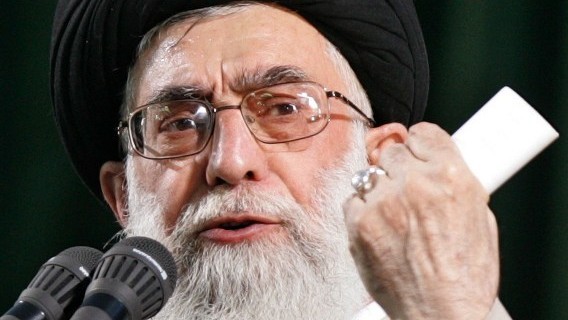AFP/Atta Kenare
AFP/Atta Kenare
With Washington distracted by President Trump's executive orders, Iran has reportedly taken advantage of the situation by test launching its first ballistic missile since last July. U.S. defense officials told Reuters the intermediate-range ballistic missile traveled 630 miles before exploding in mid-air. In response, the U.S. has appropriately called for a special meeting of the U.N. Security Council to discuss the test--a launch that would arguably violate a Security Council resolution calling on Tehran to cease any work on ballistic missile development.
This isn't the first time the Iranian regime has test-launched ballistic missiles since the nuclear agreement was codified in July 2015. Indeed, by its own words and actions, Tehran has acted on its long-held view that any actions related to its missile program are outside the terms of the nuclear deal, strictly for defensive purposes, and are therefore legal under international law. Whether the Iranians are right or wrong in this assessment is beside the point; either way, Iran is now elevating its ballistic missile program to keep its neighbors on notice; it not only possesses the capacity to strike its enemies where it hurts, but the scientific know-how to expand the range and lethality of its missiles regardless of what the international community demands. Indeed, now that Tehran's nuclear program is limited by international--albeit temporarily--by international inspectors, the production and testing of ballistic missiles is now an even more important element of Iran's national defense strategy
All eyes are now understandably on President Trump and his national security team. Except for requesting an emergency Security Council meeting to talk about the issue, the Trump administration has adopted a cautious, wait-and-see approach to the latest missile test.
Former National Security Adviser Michael Flynn, in what would be his only public appearance at the White House before resigning his position three weeks later, declared on February 1 that Iran's ballistic missile launches are both a concern to the U.S. and suggested cryptically that the Trump administration will retaliate when the time is right. What that reprisal is will be subject to vigorous debate within the National Security Council, where all department secretaries and agency directors must approach the subject with the delicacy that it deserves.
Some of the administration's most committed supporters would prefer the White House adopt a strong series of economic sanctions on banks and other sectors of the Iranian economy either directly financing the missile program or aiding and abetting its advancement. The Trump administration, however, is right to go slow--foreign policy and national security strategy should not be decided on the basis of domestic political pressure and emotional impulses.
The White House may very well conclude that additional sanctions on Iranian entities are required to send a message of resolve to the country's political and military leaders that there is a new U.S. administration in town--and that it won't be held hostage to Tehran's threats of walking away from the nuclear agreement.
Yet that decision (if it ever comes) should be the product of a well thought out, exhaustive process of give-and-take whereby all the benefits and consequences of a policy option are debated and evaluated before a final decision is made by the Commander-in-Chief. Iran will prove to be a critical test of the effectiveness of the Trump administration's National Security Council process.
The United States has gotten into incredible trouble in the past when viewing international affairs through a black-and-white, us vs. them construct. The foreign policy establishment in decades past has also had an awful habit of assuming they can understand the complexities, cultural sensitivities, and history of nations from Washington, D.C.--a belief that has often resulted in wars that have lasted longer, cost more, and resulted in more U.S. casualties than the American people were prepared for. The decision to invade Iraq and overthrow the regime of Saddam Hussein, for instance, was built on a simplistic narrative where evil governments deserve to be destroyed and replaced by democratic utopias espousing western values, regardless of the financial cost and the regional balance-of-power consequences.
The world was a much easier maze to navigate during the Cold War era, when U.S. foreign policy was crafted with a simple and unambiguous objective in mind: Contain the Soviet Union and prevent the Kremlin from spreading its reach into Western Europe, the Asia-Pacific, the Western Hemisphere, and Africa. The problems of the 21st century are far more complicated; even long-time adversaries like Iran have national security interests that are mutual to those of the U.S., such as combating the Islamic State in Iraq and Syria and boosting trade ties. The world, in other words, is a sea of gray largely immune to easy solutions.
How does the United States balance the need to keep Iran's regional ambitions in check and punish Tehran for its violation of U.N. Security Council resolutions, while at the same time uphold its obligations under the nuclear agreement and ensure Iran implements its end of the deal fully?
Is such a balancing act even possible, and if so, how can Washington send a strong signal to the Iranians that they will be held accountable for actions detrimental to the region's stability?
These are the very intractable questions that President Trump and his National Security Council will need to find answers to. Ironically enough, Iran's latest launch of a ballistic missile will hopefully nudge the Trump administration to the conclusion that difficult issues can only be addressed with nuanced solutions.
---
Daniel DePetris is a fellow at Defense Priorities.

